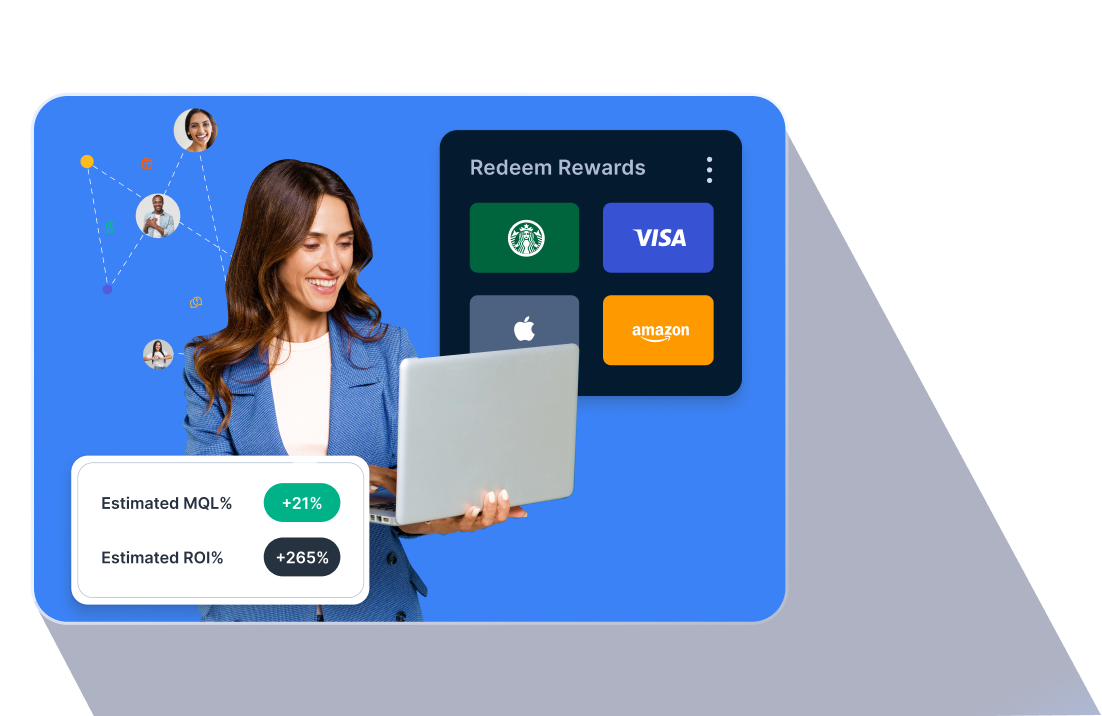
Istilah Daftar Istilah
Plum - Platform Hadiah, Insentif, dan Pembayaran
- Apa yang dimaksud dengan distribusi voucher?
- Jenis voucher apa yang biasanya didistribusikan?
- Bagaimana cara mendistribusikan voucher kepada individu atau karyawan?
- Bagaimana organisasi dapat memastikan pelacakan dan pengelolaan distribusi voucher yang tepat?
- Bagaimana program distribusi voucher dapat menguntungkan bisnis dan individu?
- Apakah ada batasan atau larangan dalam penukaran voucher?
Distribusi Voucher
Distribusi voucher mengacu pada proses pemberian voucher atau kupon kepada individu atau karyawan sebagai bentuk hadiah, insentif, atau penawaran promosi. Voucher dapat berupa sertifikat berbasis kertas atau kode elektronik yang dapat ditukarkan dengan diskon, produk atau layanan gratis, atau penawaran khusus lainnya. Program distribusi voucher biasanya digunakan oleh bisnis untuk mendorong loyalitas pelanggan, memberi penghargaan kepada karyawan, menarik pelanggan baru, atau menghasilkan penjualan.
Apa yang dimaksud dengan distribusi voucher?
Penyebaran sertifikat atau voucher yang dapat ditukarkan sebagai bentuk insentif atau hadiah, yang memungkinkan penerima untuk memilih barang atau pengalaman yang mereka sukai.
Jenis voucher apa yang biasanya didistribusikan?
Jenis voucher yang umum meliputi:
- Voucher diskon: Voucher ini memberikan persentase atau jumlah tetap dari harga pembelian produk atau layanan tertentu.
- Voucher hadiah: Dapat ditukarkan dengan barang apa pun yang memenuhi syarat di toko atau kategori tertentu, menawarkan fleksibilitas bagi penerima.
- Voucher pengalaman: Memberikan akses ke pengalaman seperti perawatan spa, kunjungan ke taman hiburan, atau acara budaya.
- Voucher perjalanan: Dapat digunakan untuk penerbangan, menginap di hotel, mobil sewaan, atau paket perjalanan, sehingga Anda dapat menikmati liburan yang menyenangkan.
- Voucher digital: Dikirim secara elektronik, sering kali dalam bentuk kode yang dapat digunakan secara online atau pada titik-titik kontak tertentu dalam ekosistem digital.
Bagaimana cara mendistribusikan voucher kepada individu atau karyawan?
Voucher didistribusikan kepada individu atau karyawan melalui:
- Diberikan secara langsung: Voucher dapat diberikan secara langsung kepada individu, seperti melalui email, surat, atau secara fisik saat acara atau upacara pemberian hadiah.
- Portal online: Organisasi dapat membuat portal online di mana setiap orang dapat mengakses dan mengelola voucher mereka, memilih dari opsi yang tersedia dan mengunduh atau mencetaknya.
- Platform pihak ketiga: Beberapa organisasi menggunakan platform manajemen voucher yang menangani distribusi, penukaran, dan pelacakan atas nama mereka.
- Program hadiah tambahan: Voucher dapat diintegrasikan ke dalam program loyalitas atau sistem penghargaan karyawan, yang secara otomatis diberikan berdasarkan kriteria tertentu.
Bagaimana organisasi dapat memastikan pelacakan dan pengelolaan distribusi voucher yang tepat?
Pelacakan dan pengelolaan voucher dapat dilakukan dengan:
- Kode unik: Tetapkan kode unik untuk setiap voucher untuk pelacakan yang lebih baik dan untuk mencegah penggunaan yang tidak sah.
- Sistem penukaran: Menerapkan sistem digital atau manual di mana voucher divalidasi dan ditandai sebagai penukaran setelah digunakan.
- Pelaporandan analisis : Melacak distribusi voucher, tingkat penukaran, dan pola pengeluaran untuk mengevaluasi efektivitas program dan mengoptimalkan penawaran.
- Tindakan keamanan: Memastikan penyimpanan dan akses yang aman ke data voucher, menerapkan protokol keamanan untuk mencegah penipuan dan penyalahgunaan.
Bagaimana program distribusi voucher dapat menguntungkan bisnis dan individu?
Program distribusi voucher bermanfaat bagi bisnis dan individu:
1. Bisnis
- Meningkatkan penjualan dan keterlibatan pelanggan: Voucher menstimulasi pembelian, menarik pelanggan baru, dan mendorong bisnis yang berulang.
- Mempromosikanproduk atau layanan tertentu : Targetkan voucher untuk mempromosikan penawaran baru atau membersihkan inventaris yang bergerak lambat.
- Motivasi dan insentif karyawan: Memanfaatkan voucher sebagai hadiah untuk kinerja, loyalitas, atau partisipasi dalam program.
- Pemasarandan loyalitas pelanggan : Sertakan voucher dalam kampanye pemasaran untuk menarik pelanggan baru dan membangun loyalitas merek.
- Wawasan datadan riset pasar : Lacak data penggunaan voucher untuk mengumpulkan wawasan berharga tentang preferensi pelanggan dan kebiasaan pembelian.
2. Individu
- Diskon dan penghematan: Voucher menawarkan penghematan biaya untuk produk atau layanan yang diinginkan, meregangkan anggaran dan memaksimalkan nilai.
- Akseske berbagai pengalaman : Voucher membuka pengalaman menarik yang mungkin tidak bisa mereka dapatkan, menambah kesenangan dan variasi dalam hidup mereka.
- Hadiahdan pengakuan : Menerima voucher sebagai hadiah atau insentif berkontribusi pada perasaan dihargai dan dihargai.
- Fleksibilitasdan pilihan : Jenis voucher yang berbeda memberikan fleksibilitas dan memungkinkan setiap orang untuk memilih opsi yang sesuai berdasarkan preferensi mereka.
- Kenyamanandan potensi pemberian hadiah : Voucher mudah digunakan dan menjadi hadiah yang sempurna untuk teman dan keluarga.
Dengan menerapkan program distribusi voucher yang dirancang dan dikelola dengan baik, bisnis dapat secara efektif mencapai tujuan pemasaran dan penjualan sambil memotivasi karyawan dan memberikan manfaat yang berharga bagi individu.
Ingatlah, komunikasi yang jelas mengenai ketentuan voucher, sistem pelacakan yang efisien, dan beragam penawaran adalah kunci untuk memaksimalkan keberhasilan program tersebut.
Apakah ada batasan atau larangan dalam penukaran voucher?
Batasan dan larangan penukaran meliputi:
- Tanggal kedaluwarsa: Tetapkan tanggal kedaluwarsa yang realistis untuk mendorong penggunaan tepat waktu dan mencegah penumpukan voucher yang tidak terpakai.
- Persyaratan pembelian minimum: Menerapkan ambang batas pembelanjaan minimum untuk mencegah penggunaan pada pembelian yang dapat diabaikan.
- Kategori pengecualian: Produk atau layanan tertentu dapat dikecualikan dari penukaran untuk menjaga profitabilitas dan mengendalikan biaya program.
- Pembatasan lokasiatau vendor : Voucher mungkin terbatas pada toko, lokasi, atau vendor mitra tertentu.
- Periode pemadaman listrik: Batasi penukaran selama musim puncak atau hari libur tertentu untuk mengelola permintaan dan mengendalikan biaya.

